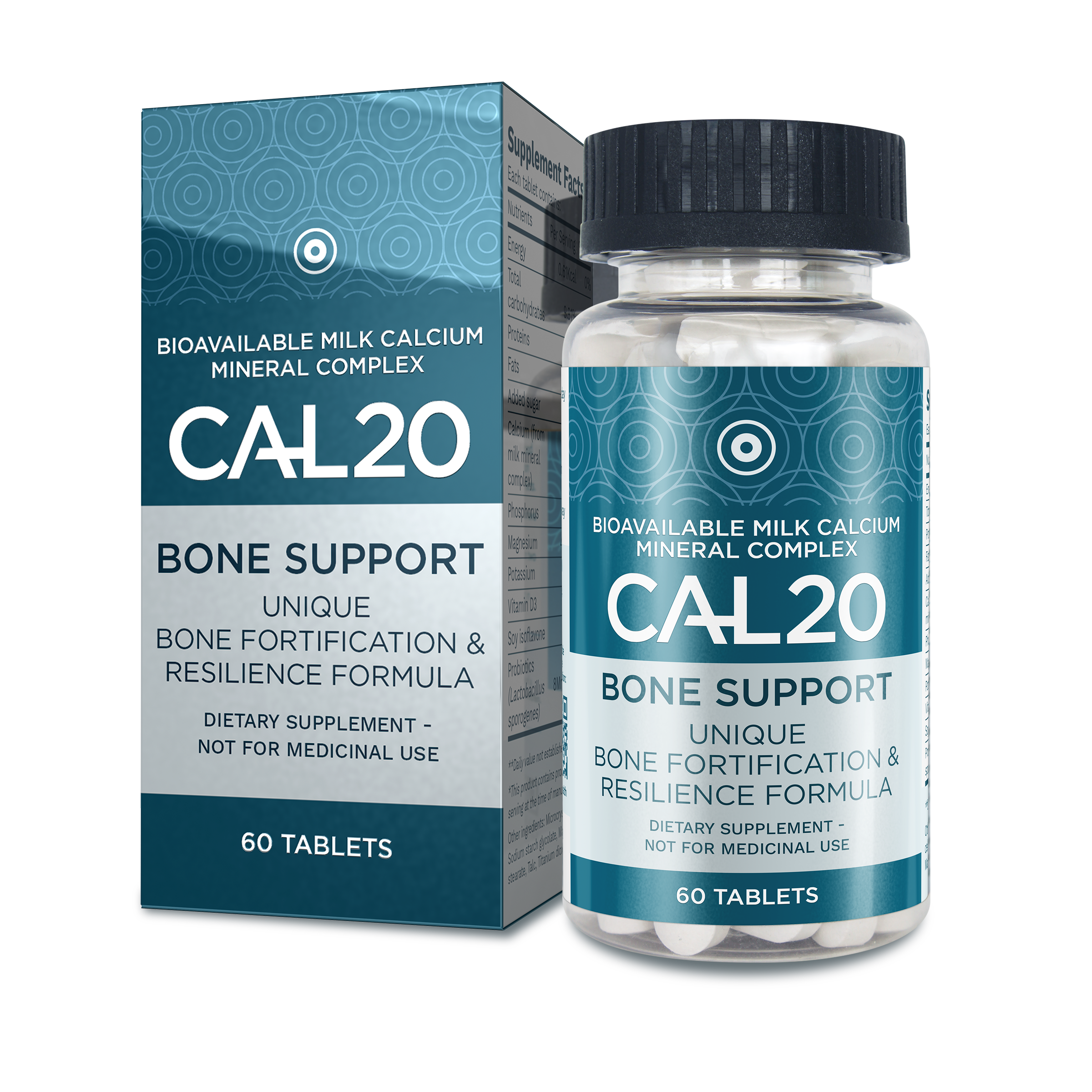Your body needs calcium to build and maintain strong bones and to carry out many important functions. According to the National Institute of Health in Maryland USA, almost all calcium in the body is stored in your bones and teeth, resulting in their structure and hardiness.
Calcium helps your muscles move and your nerves communicate with the rest of the body. It also helps blood flow and releases hormones that affect many bodily functions. Vitamin D plays a major role in helping your body absorb calcium.
Common calcium supplements usually contain either calcium carbonate or calcium citrate. These are forms of calcium that are found in chalk, limestone, or marble. Imagine chewing on a stone. It is incredibly difficult to break it down and therefore your body hardly absorbs any of it. When you take common calcium supplements, your body can only absorb a small amount. Studies have shown that calcium supplements may only have a small effect on reducing the risk of fractures.
In fact, the International Osteoporosis Foundation (IOF) recommends against the routine use of calcium supplements because they can cause painful kidney stones and may even increase the risk of cardiovascular disease.
How do I get Calcium into my diet?
Getting calcium from your diet is the best way to maintain bone health. However, it can be difficult for women over 40 to absorb enough calcium from food. During menopause, women lose bone mass faster than they can replace it. Calcium is a significant component of bone, so it’s important to maintain healthy levels.
Osteoporosis, a condition where bones become weak and brittle, affects one-third of the world’s population. Traditional treatments for osteoporosis include bisphosphonate drugs, which can have serious side effects such as jaw necrosis, femoral fractures, ocular inflammation, and even esophageal cancer.
CAL20 is different! It is a calcium supplement derived from whey, a by-product of milk. It contains probiotics that help the body digest the calcium more effectively, and each tablet also contains Vitamin D3, which helps the body absorb the calcium. The calcium-to-phosphorus balance in CAL20 is similar to that found in human bones, making it highly absorbable. CAL20 has been shown to alleviate symptoms associated with osteoporosis for over 85% of participants in clinical studies.
Unlike other calcium supplements, CAL20 has no known side effects and is highly bioavailable. Women who have gone through menopause should prioritize their bone health by getting a bone density scan and supplementing their diet with a highly absorbable calcium supplement like CAL20. If you have been diagnosed with osteopenia or osteoporosis, speak to your healthcare professional about taking a therapeutic dose of CAL20 to alleviate symptoms associated with menopause.




